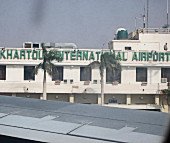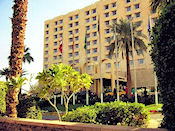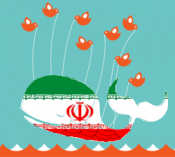 While I was traveling earlier this month, I missed the latest release of civil penalty information by the Treasury Department’s Office of Foreign Assets Control (“OFAC”). Both KLM and Geico were fined. We’ll look at the KLM case today and GEICO tomorrow because both penalty cases raise interesting issues.
While I was traveling earlier this month, I missed the latest release of civil penalty information by the Treasury Department’s Office of Foreign Assets Control (“OFAC”). Both KLM and Geico were fined. We’ll look at the KLM case today and GEICO tomorrow because both penalty cases raise interesting issues.
KLM was fined $5,336.26 in connection with two cargo shipments it carried between KLM’s cargo facilities at O’Hare Airport in Chicago and the Khartoum International Airport. One shipment consisted of oil field equipment and the other contained hydraulic hoses. The offending shipments were not voluntarily disclosed to OFAC.M
OFAC’s initial nastygram to KLM (or “Prepenalty Notice” in OFAC-speak) proposed a $6,277.95 penalty. KLM’s reply admitted that its compliance program didn’t mention embargoed destinations but sought clemency from OFAC on the grounds that it had now circulated a notice to all U.S. operations reminding them about “bookings that cannot be accepted.” That delayed stab at compliance, however, did net KLM a savings of $941.69 or about 15% of the originally proposed penalty.
What is interesting here is that it now appears that KLM has circulated a bulletin to all of it’s cargo operations instructing them not to take any packages to Sudan or other embargoed destinations. That, of course, is an excessive, but understandable, response to the OFAC penalty proceeding. Yet, as we all know, not all cargo to Sudan is prohibited. A box of books would be fine under the information exemption. But KLM doesn’t want to have to inspect cargo and determine whether an export license is or isn’t required. And who can blame them?
Yes, yes, KLM broke the rules here, and it’s hard to muster up an abundance of sympathy for a carrier whose compliance program didn’t even mention that whole business of embargoed countries. Yet, yet, busting an airline for something like this (even if the fine is less than a first-class transatlantic ticket) will necessarily result in the airline doing exactly what it did here: overreact. This will make it difficult for shippers to send perfectly legal cargo to the country, violating the spirit, if not the letter, of the Berman Amendment, which established the exception for informational materials.
If OFAC needed a couple of whipping boys here, the shippers were better targets. They, of course, knew what they are shipping and should have known it wasn’t exempt.

 Posted by
Posted by  Category:
Category: 


 The folks over at the (unofficial) Google Earth Blog are all
The folks over at the (unofficial) Google Earth Blog are all  Here’s what has changed at OFAC. Yesterday OFAC
Here’s what has changed at OFAC. Yesterday OFAC  Robert J. Cabelly, a D.C.-based lobbyist, has been indicted for violations, among other things, of the International Emergency Economic Powers Act in connection with lobbying and other activities he was alleged to have engaged in on behalf of the Government of Sudan. A copy of the indictment can be read by clicking
Robert J. Cabelly, a D.C.-based lobbyist, has been indicted for violations, among other things, of the International Emergency Economic Powers Act in connection with lobbying and other activities he was alleged to have engaged in on behalf of the Government of Sudan. A copy of the indictment can be read by clicking 

